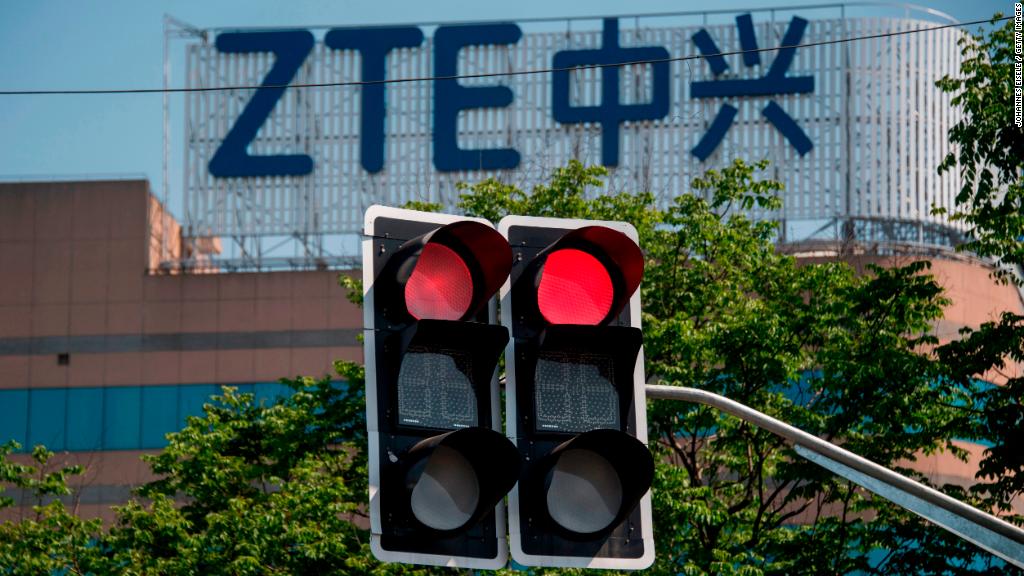
Shares in Chinese tech firm ZTE plummeted more than 25% Tuesday after US lawmakers sought to uphold a ban that prevents the company from buying crucial American parts.
The Hong Kong-listed stock of ZTE (ZTCOF), which makes smartphones and telecommunications equipment, had already been hammered last week when it resumed trading for the first time in nearly two months.
The US Commerce Department imposed the ban on ZTE in April, bringing most of the company's operations to a standstill. But after an intervention from President Donald Trump, the department announced a deal earlier this month to remove the ban in exchange for a fine of more than $1 billion and other punishments.
That prompted a backlash in Washington. On Monday night, the US Senate passed an annual defense bill that included a measure to undo the decision to lift the ban.
Several US lawmakers have repeatedly criticized the Trump administration's deal to save ZTE. They were unhappy that the company, which they see as a national security issue, was being used as a bargaining chip in trade negotiations with China.
The ban was put in place after the Commerce Department said ZTE violated a 2017 deal in which the Chinese company admitted to evading sanctions on Iran and North Korea.
Related: US cuts a deal with Chinese smartphone maker ZTE
Following the Senate vote, ZTE shares lost 25% in Hong Kong. They have now fallen more than 60% since they resumed trading last week, wiping billions of dollars off the company's market value.
Analysts say the lengthy ban has cost the company billions in lost revenue, strained its relationships with customers and hurt its reputation.
It's still unclear exactly how the political fight over ZTE in Washington will play out.
Republican leaders said the ZTE measure in the defense bill may not survive if Trump remains strongly opposed to it. The Senate version of the bill still has to be reconciled with the House version.
Sen. John Cornyn said that Trump will meet with lawmakers on Wednesday to discuss the ZTE provision.
"I think the president wants to weigh in and we want to listen to what he has to say," Cornyn said.
-- Phil Mattingly contributed to this report.

